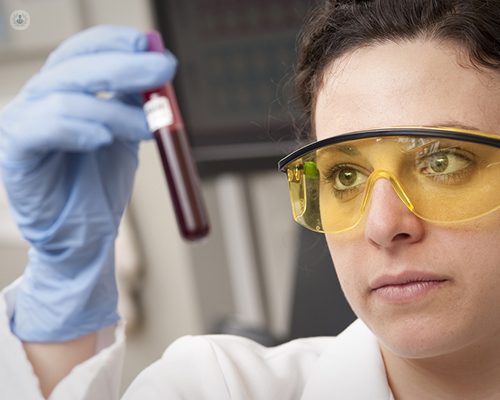

What is lab testing?
Lab testing, or blood work, tests our blood to give us insight into what is in our blood and can indicate our overall health.

What does lab testing involve?
Blood has to be drawn which is commonly taken from the inside of the elbow using a fine needle and syringe. The blood sample is then placed in a centrifuge in a laboratory and spun until the blood separates.
Why is lab testing done?
Lab testing can be done to test for the following:
- Cardiovascular tests (e.g. testing for cholesterol and lipids)
- Liver function tests
- Kidney function tests
- Thyroid tests
- Reproductive function tests
- Vitamin tests
- Carbohydrate tolerance test
- White blood cell test
- Red blood cell test
Having your blood work done annually with a physician can help to catch any illnesses or conditions early, to aid successful treatment.
What does it feel like to have your blood taken?
Usually your blood will be taken from the inside of your arm. A tourniquet is used on the upper arm to slow down the blood flow and to allow the vein to swell. The skin is cleaned and the needle is injected into the vein. A syringe draws out the blood and once taken pressure is applied to the area. A small plaster can be used to cover the wound. Having your blood taken is not painful, but some people find it uncomfortable.
What do abnormal results mean?
Once the blood sample has been analysed in a lab the results can sometimes be viewed online, or they will be posted to you or your physician. Most results will require interpretation by a medical professional and should be shared with your doctor. If any abnormalities are indicated, further tests may be required, including more blood tests, but also scans or biopsies.
